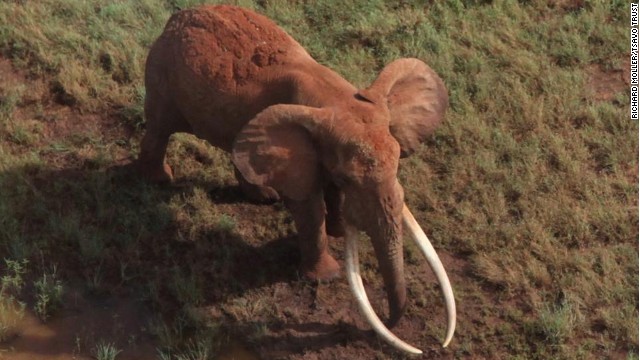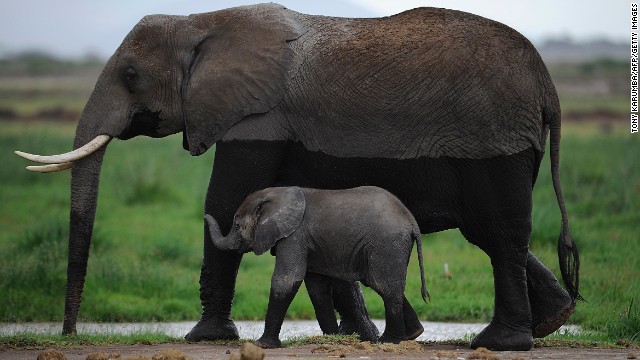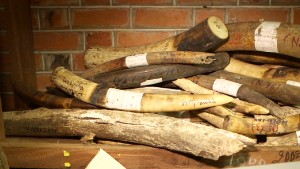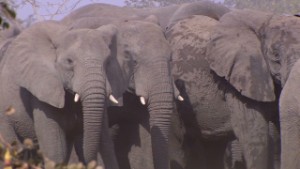Poachers kill beloved Kenyan elephant known for giant tusks
June 15, 2014 -- Updated 0704 GMT (1504 HKT)

Kenya's mighty Tsavo elephant Satao, who was killed by poachers with poisoned arrows on May 30.
Satao was shot with poisoned arrows in the sprawling Tsavo National Park in the country's southeast.
Wildlife officials found
his carcass with two massive holes where his tusks once stood. His face
was so badly mutilated, authorities used other ways to identify him,
including his ears and the pattern of mud caked on his body.
 Ivory's tragic price
Ivory's tragic price
 Rangers search for illegal ivory
Rangers search for illegal ivory
 Chad's bloody ivory trade
Chad's bloody ivory trade
"Satao is dead, killed by
an ivory poacher's poisoned arrow to feed the seemingly insatiable
demand for ivory in far off countries. A great life lost so that someone
far away can have a trinket on their mantlepiece," Tsavo Trust said in statement late Friday. "Rest in peace, old friend, you will be missed."
Satao was about 45 years
old, and a hit among visitors at the national park, where understaffed
conservationists monitored him regularly to protect him from poachers.
"When he was alive, his
enormous tusks were easily identifiable, even from the air," said Tsavo
Trust, a non-profit that protects wildlife.
Though he mostly roamed
within a limited part of the park, he recently started venturing to an
area considered a hotbed of poaching activity.
The area he moved to in search of fresh water is hard to access due to its thick vegetation and scarce roads.
"With today's mounting
poaching pressures and anti-poaching resources stretched to the limit,
it proved impossible to prevent the poachers getting through the net,"
Tsavo Trust said.
His carcass was found earlier this month, but authorities verified his identity Friday.
"We are left with no choice but to acknowledge that the great Satao is no more," the trust said in a statement.
Satao is a victim of an
illegal ivory trade that has doubled worldwide since 2007, with the
United States the second-largest retail market for illegally acquired
tusks. China is the largest market.
Conservation groups say
the recent surge in the illicit ivory trade has resulted in the killing
of 30,000 African elephants annually in recent years. The tusks are sold
for thousands of dollars a kilogram, making it a lucrative trade and
endangering already fragile populations in Africa..
"The surge in the
killing of elephants in Africa and the illegal taking of other listed
species globally threatens not only wildlife populations but the
livelihoods of millions who depend on tourism for a living and the lives
of those wardens and wildlife staff who are attempting to stem the
illegal tide," said Achim Steiner, executive director of the U.N.
environment program.
Armed groups are
capitalizing on the increasing value of ivory by killing elephants and
trading their tusks for arms and ammunition.

ไม่มีความคิดเห็น:
แสดงความคิดเห็น